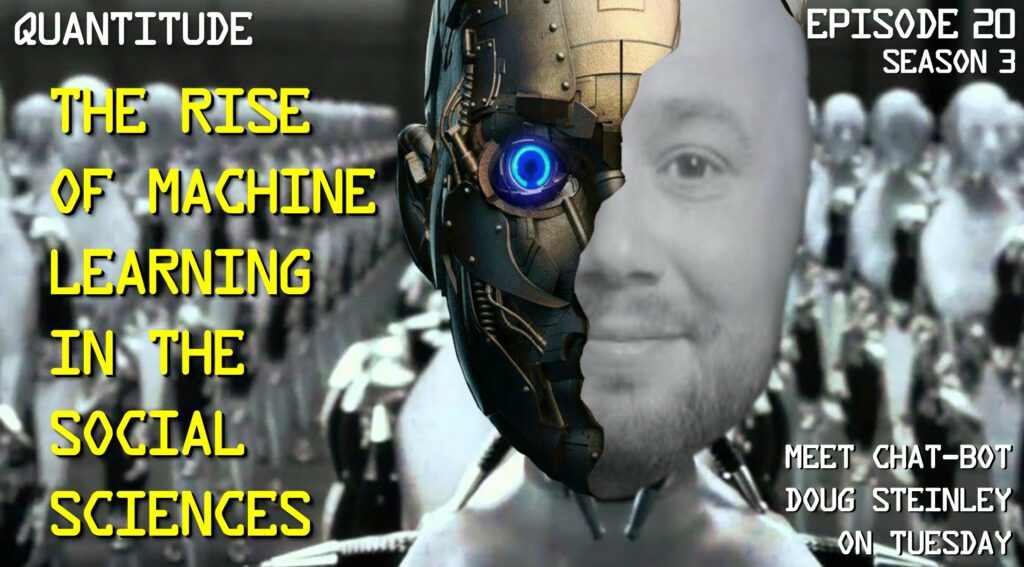Patrick and Greg discuss the rise of machine learning in the social sciences with guest Doug Steinley who is a professor in the Department of Psychology at the University of Missouri at Columbia and is the current editor of the APA journal Psychological Methods. Along the way they also discuss funeral expenses, Swedish massage, Amy the Chatbot, irony versus coincidence, lavender bath bombs, varmint removal, Planet of the Apes, Voltron, the Cookie Monster, theory smoothies, Bugs Bunny and Yosemite Sam, ironing your Christmas paper, and meat grinders.
Additional Show Notes
Grimmer, J. (2015). We are all social scientists now: How big data, machine learning, and causal inference work together. PS: Political Science & Politics, 48, 80-83.
Grimmer, J., Roberts, M. E., & Stewart, B. M. (2021). Machine learning for social science: An agnostic approach. Annual Review of Political Science, 24, 395-419.
Hastie, T., Tibshirani, R., Friedman, J. H., & Friedman, J. H. (2009). The elements of statistical learning: data mining, inference, and prediction (Vol. 2, pp. 1-758). New York: springer.
Hindman, M. (2015). Building better models: Prediction, replication, and machine learning in the social sciences. The ANNALS of the American Academy of Political and Social Science, 659, 48-62.
James, G., Witten, D., Hastie, T., & Tibshirani, R. (2013). An introduction to statistical learning (Vol. 112, p. 18). New York: Springer.
Jordan, M. I., & Mitchell, T. M. (2015). Machine learning: Trends, perspectives, and prospects. Science, 349(6245), 255-260.
O’Neil, C. (2016). Weapons of math destruction: How big data increases inequality and threatens democracy. Broadway Books.
Yarkoni, T., & Westfall, J. (2017). Choosing prediction over explanation in psychology: Lessons from machine learning. Perspectives on Psychological Science, 12, 1100-1122.

